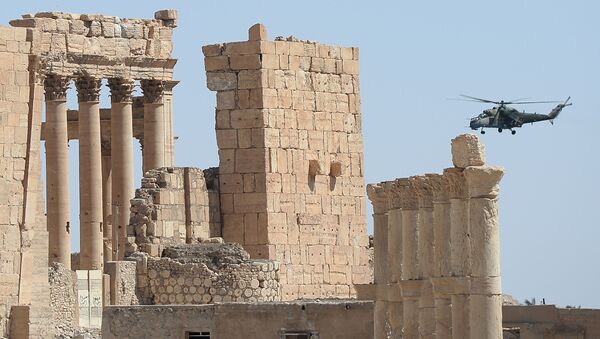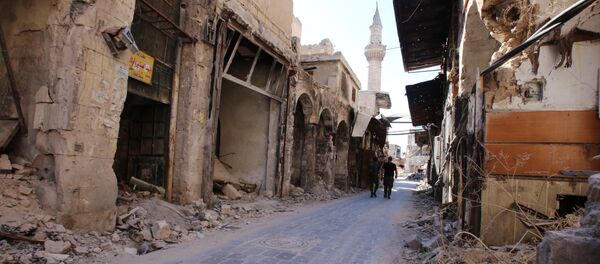"There are powerful parties that can agree on the ceasefire, and there are parties that have the possibility and position to reach a long-term political solution, and we see neither of these for the time being. We are very worried today by the prospect that there may be no more cessation of hostilities and political solution," Barth said.
US Secretary of State John Kerry told Russian Foreign Minister Sergey Lavrov on Wednesday that Washington is prepared to suspend bilateral engagement with Moscow in Syria unless Russia takes immediate steps "to end the assault on Aleppo and restore the cessation of hostilities."
Russian Foreign Ministry spokeswoman Maria Zakharova said that lack of progress on the United States' pledge to separate the armed Syrian opposition from terrorists blocks the entire set of ceasefire agreements.
"We are very sad to see that there is no more cessation of hostilities which we had for a short week. We are very alarmed at the end of that ceasefire over the escalation in Aleppo and parts of rural Damascus, in Homs and Hama," Barth said.
The ICRC is calling on all partied to the conflict to take measures to protect the civilian population from indiscriminate fighting and to allow the humanitarian aid to reach all the besieged areas, he added.
The latest aid delivery took place on September 25, when a UN, Syrian Arab Red Crescent (SARC) and ICRC convoy reached four besieged towns – Madaya, Zabadani, Fouaa and Kafriya – with food and humanitarian supplies for 60.000 people.
"The prospective is that the conflict is now for six years, and it is probably even more violent today than it was at any point before… There is fighting in large parts of Syria, and the humanitarian situation is absolutely catastrophic," Barth said.
On September 9, Russia and the United States coordinated a nationwide ceasefire deal in Syria under the auspices of the ISSG. The deal which became valid on September 12 envisaged delineation of territories controlled by terror groups and moderate opposition armed forces, called for unimpeded delivery of humanitarian aid and stipulated that only designated terror groups would be targeted in military strikes.
Numerous ceasefire violations, including US airstrike on positions of the Syrian army on September 17 and attack on the UN humanitarian convoy two days after, shattered the deal, leading to the intensified fighting in Aleppo.



